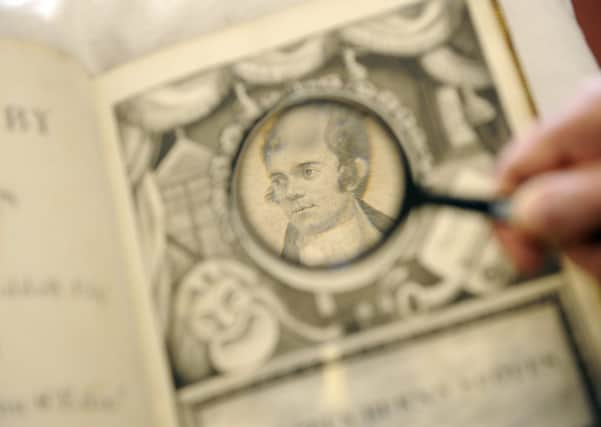Scots fact of the day: Robert Burns and Jamaica


There are many fascinating stories about the ploughman’s poet; from his first recital of the Selkirk Grace, to his life as an exciseman and of course the shocking account of how he was forced to settle his debts on his deathbed.
Perhaps though, the most fascinating and the least known of these tales is that Burns almost left, some may even say fled, the country of his birth in a bid to begin a new life in Jamaica.
CONNECT WITH THE SCOTSMAN
Advertisement
Hide Ad• Subscribe to our daily newsletter (requires registration) and get the latest news, sport and business headlines delivered to your inbox every morning
In 1786, Burns, along with his brother, was struggling. The Ayrshire farm the two worked was producing little crops and their father had just died. Close to financial ruin and struggling to get his work noticed, Robert sought solace in the arms of a woman he had met in his youth at a village dance, Jean Armour.
Burns first met the “Mauchline Belle” when Jean overheard him exclaiming, after sending his loyal collie dog home, that he wished he could find a lass who would love him as faithfully as his dog did. Intrigued by his words she struck up a conversation with him and the two were soon smitten.
However, it was not to be an easy passage for the pair as Jean’s parents did their best to separate them, sending Jean away to live with her uncle in Paisley. Crushed, desperate and struggling financially, Burns turned to his friend Patrick Douglas, a doctor with investments in an sugar plantation in Jamaica.
This investment returned Douglas great wealth, for even in those days Scotland had a sweet tooth and importing sugar was big business, Burns sought to emulate his friend’s success.
Douglas’ brother, the manager of the plantation, offered Burns a job as an overseer of the enslaved black workforce.
Advertisement
Hide AdBurns accepted the position and although some friends worried about his health in the climate, he began to plan his emigration to escape the woes that threatened to overcome him, should he stay in Scotland.
Fate intervened though, as in a last ditch bid Burns approached John Wilson, a well known Kilmarnock publisher and begged him to publish his work.
Advertisement
Hide AdWilson reluctantly agreed and six hundred and twelve copies of Burns’s first book, ‘Poems, Chiefly in the Scottish Dialect’, were published, with each issue being offered to the reader for the reasonable sum of three shillings.
The book was released in July 1786 as Burns finalised his preparations to move to Jamaica. Within a few short weeks all of the copies were sold prompting Burns to turn away from the port and the ship that awaited him there, and instead head towards the City of Edinburgh, fame and a new life with Jean.
SCOTSMAN TABLET AND IPHONE APPS